6 Factors Affecting The Cyanide Gold Extraction Process Efficiency
2022-08-04 Xinhai (2438)
2022-08-04 Xinhai (2438)
If you have any questions, please contact us through the following ways, we will give you more and better assistance!

The cyanide gold extraction process is a commonly used gold ore sorting process today. It is a process of extracting gold with the help of a gold extraction agent as a leaching solution. CIP and CIL belong to the cyanide gold extraction process.
At this stage, the cyanidation gold extraction technology is mature and the economic indicators are ideal. It is a relatively popular gold ore beneficiation process.
Even so, some factors that affect the cyanidation leaching of gold ore should be paid attention to, mainly including ore properties, cyanide and oxygen concentration, pulp pH value, pulp concentration, leaching temperature and leaching time.
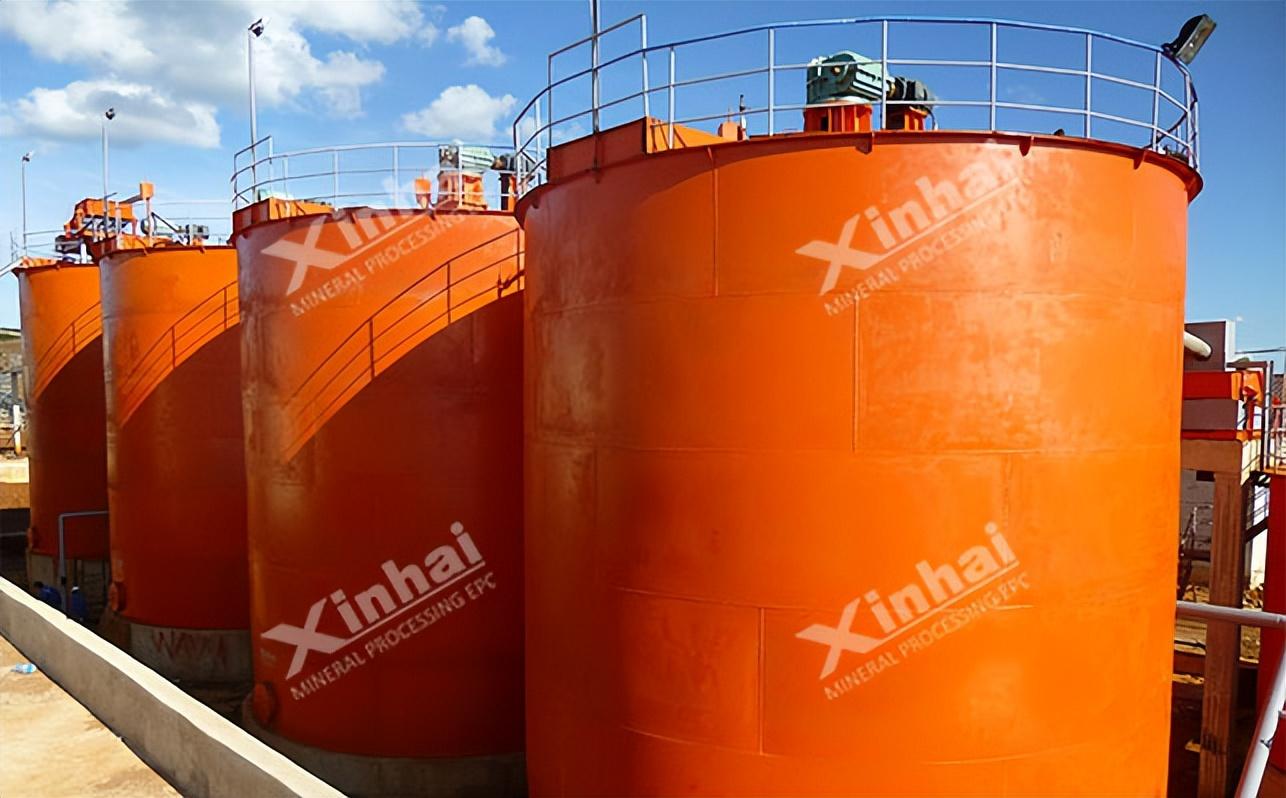
Ore properties include properties such as mineral composition and particle size.
Although the cyanidation gold extraction process is good, not all gold-bearing ores are suitable for cyanidation.
Arsenic, antimony, lead and other minerals present in the ore will dissolve into certain compounds or colloids and adsorb on the surface of the gold particles to form a protective film, which hinders the leaching of gold.
Copper, bismuth and other components will greatly increase the consumption of cyanide and oxygen, and reduce the leaching rate of gold.
The carbonaceous material present in the ore is similar in properties to activated carbon, and can adsorb dissolved gold complexes, which will cause the phenomenon of "robbing gold".
In addition, the particle size of gold ore also affects the cyanide leaching of gold.
The dissolution rate of coarse-grained gold is slow, and the contact between gold and leaching solution is insufficient, which increases the time of cyanide leaching.
Therefore, gravity separation or flotation are often used as auxiliary means to recover coarse-grained gold before cyanidation leaching, or increase the grinding intensity during grinding operation to fully realize monomer dissociation of fine-grained gold.
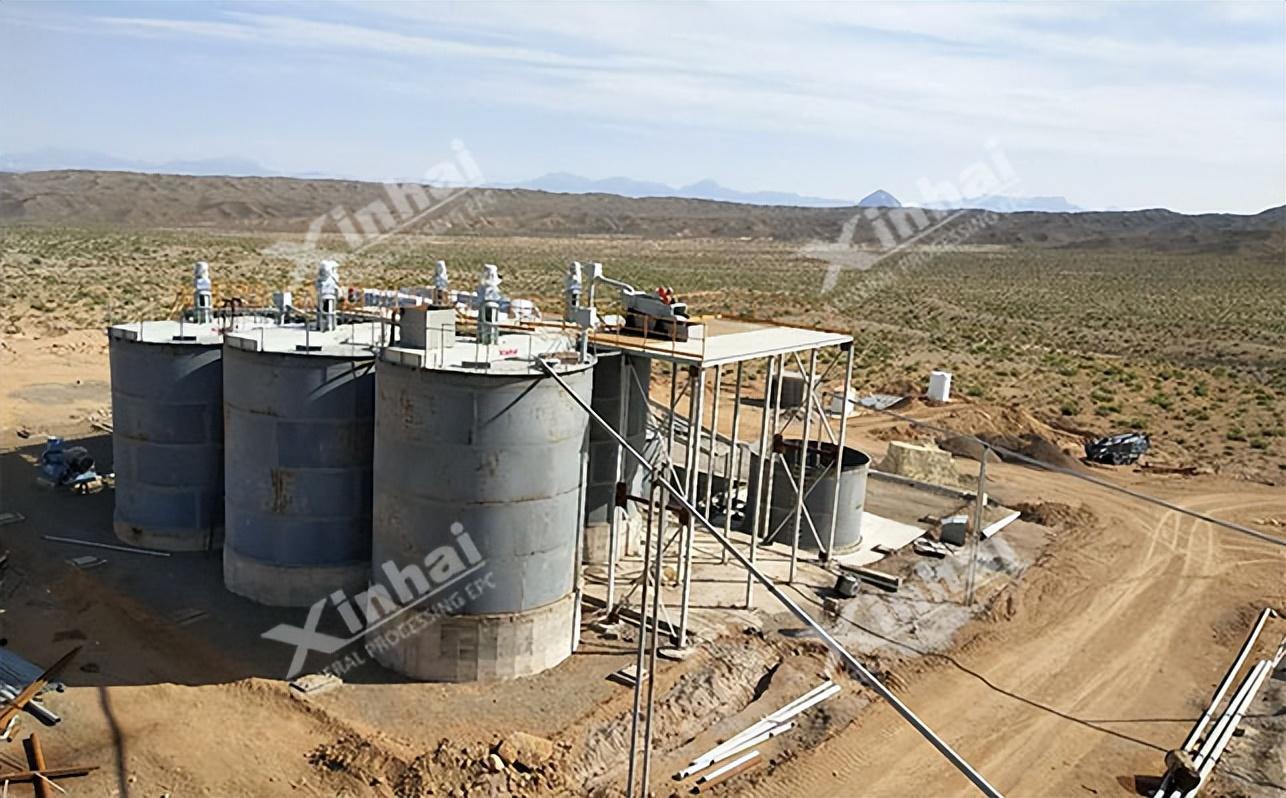
The chemical properties of gold are stable, and a certain amount of free cyanide must be ensured in the pulp to ensure normal cyanidation leaching.
Generally speaking, the cyanide concentration in the leachate is preferably 0.03-0.08%.
The dissolution rate of gold increases linearly to a maximum with increasing cyanide concentration.
The dissolution rate of gold increases as the oxygen concentration increases, and the dissolution of gold is enhanced by oxygen-enriched solutions or high-pressure gas-filled cyanation.
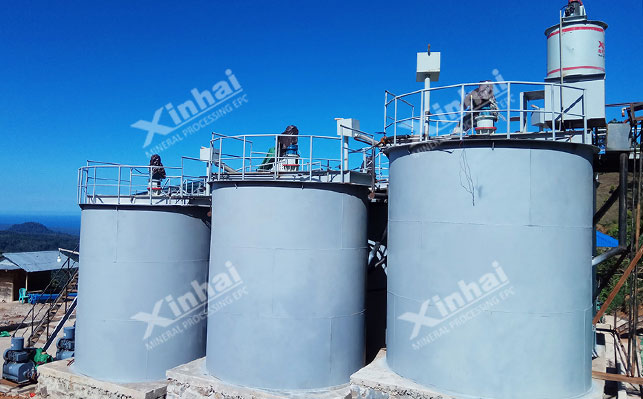
It has been proved by practice that the pH value of cyanide leaching pulp should be kept between 10-11. Too large or too small pH value will reduce the leaching rate of gold.
Lime can be added to the pulp to adjust the pH value, and the addition of lime can also weaken the hydrolysis reaction of cyanide, reduce the loss of cyanide, neutralize acid substances and precipitate harmful ions in the pulp, so as to provide good environment for cyanide leaching of gold.
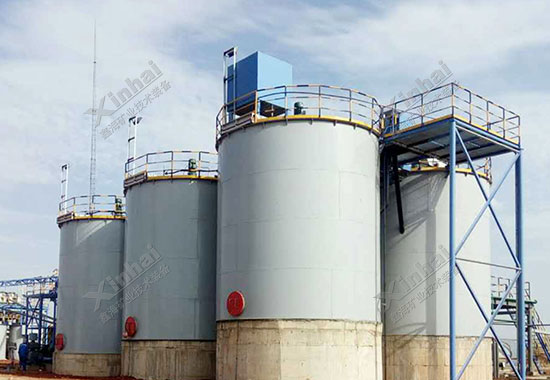
The pulp concentration will affect the diffusion rate of cyanide and oxygen in the pulp, thereby affecting the cyanide leaching of gold.
If the concentration is too large, the slurry is difficult to flow, and the leaching rate of gold is reduced.
If the concentration is too low, the processing capacity will increase and the investment cost will increase.
Therefore, the slurry concentration of cyanide gold extraction process should be appropriate, which can be determined by processing test.
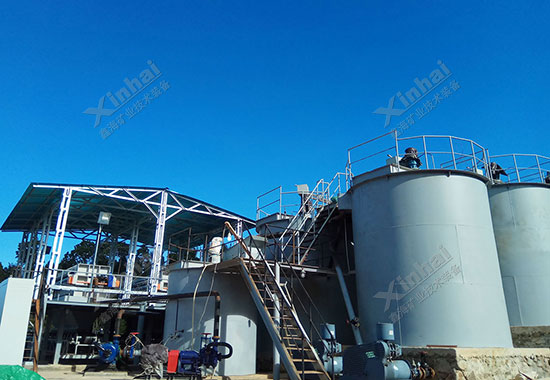
The cyanidation leaching rate of gold will increase with the increase of temperature, but at the same time, the dissolved amount of oxygen will decrease significantly, the hydrolysis of cyanide will increase, and the cyanation reaction of other metals will accelerate, resulting in an increase in cyanide consumption.
Therefore, under normal circumstances, cyanide leaching does not require heating, and it is appropriate to keep it at 15-30 degrees Celsius.
The cyanide leaching of gold is a relatively long process, generally more than 24 hours.
The cyanide leaching rate of gold will increase with the increase of time, and after reaching a certain level, the increase will slow down.
In the process of cyanidation leaching gold extraction, it is necessary to ensure sufficient leaching time. But it is also not necessary to leaching for a long time, which does not substantially help the leaching rate.
The above are several common factors that affect gold cyanide leaching.
In addition, the mud content of the pulp and the stirring speed will also have a certain impact on the leaching rate.
In actual production, the best cyanidation leaching scheme can be determined through processing tests.